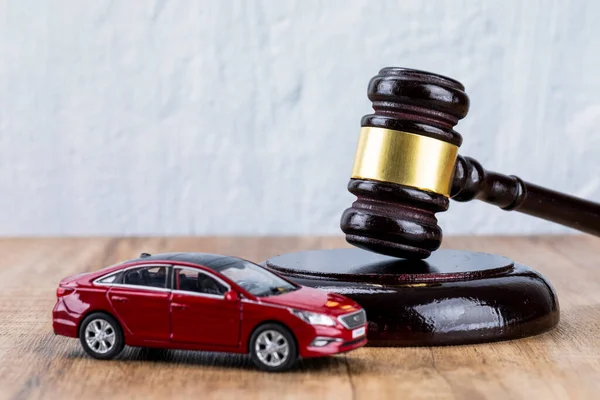California Lemon Law Explained: Rights And Remedies For Defective Vehicles
Purchasing a vehicle can be one of the largest investments a consumer makes. But what happens if that new car turns out to be defective? The California Lemon Law, officially known as the Song-Beverly Consumer Warranty Act, offers protection to consumers who find themselves stuck with faulty vehicles. It provides avenues for repair, replacement, or refund, ensuring consumers are not burdened with defective products. In this article, we’ll break down what the California Lemon Law entails, the rights it provides to consumers, and the remedies available for defective vehicles.
Understanding the California Lemon Law
The California Lemon Law applies to both new and used vehicles purchased or leased in California that come with a manufacturer’s warranty. It protects consumers from being saddled with vehicles that have substantial defects affecting their safety, use, or value. The law covers various types of vehicles, including cars, trucks, SUVs, motorcycles, and even recreational vehicles (RVs).
What Qualifies as a Lemon?
To be considered a lemon, a vehicle must have a substantial defect. But what constitutes a "substantial defect"? According to the law, this means any issue that affects the vehicle’s use, safety, or value, making it unsuitable for its intended purpose. The defect must occur within a certain timeframe, typically within the first 18 months or 18,000 miles of ownership, though some exceptions exist.
Repair Attempts: How Many Is Reasonable?
The Lemon Law requires that manufacturers be given a reasonable number of opportunities to fix the defect. While the law doesn’t provide a set number of repair attempts, it is often interpreted as:
- Two or more repair attempts for a defect that could cause death or serious injury.
- Four or more repair attempts for other types of substantial defects.
The vehicle being out of service for 30 days or more (total, not consecutive) due to repairs.
If these conditions are met, the vehicle may be eligible for relief under the California Lemon Law.
Consumer Rights Under the Lemon Law
The California Lemon Law provides several key protections for consumers who find themselves with defective vehicles. These rights include:
The Right to a Refund or Replacement Vehicle
If your vehicle is deemed a lemon, you are entitled to either a full refund of the purchase price or a replacement vehicle of the same make and model. The decision between a refund or replacement is typically up to the consumer. When opting for a refund, the manufacturer is required to cover the cost of the vehicle, including any additional charges such as taxes, registration fees, and incidental costs.

Reimbursement for Repair Costs
In addition to a refund or replacement, the Lemon Law also allows consumers to be reimbursed for any out-of-pocket repair costs associated with the defect. This includes towing expenses, rental car costs, and other related expenses that the consumer may have incurred while dealing with the defective vehicle.
Attorney’s Fees Covered
One of the advantages of the California Lemon Law is that if you successfully pursue a claim against the manufacturer, they are responsible for covering your attorney’s fees. This means that consumers can hire legal representation without worrying about the cost of litigation.
What Vehicles Are Covered?
The California Lemon Law applies to a broad range of vehicles, but there are some limitations and exclusions. Generally, the law covers:
- New and used cars, trucks, and SUVs sold or leased with a manufacturer’s warranty.
- Motorcycles and RVs (recreational vehicles) are also covered under certain conditions.
- Dealer-owned vehicles, demonstrator models, and vehicles purchased for personal, family, or household use.
However, vehicles purchased primarily for business use, especially those exceeding a certain weight limit, may not be covered under the Lemon Law.
What to Do If You Have a Lemon
If you suspect that your vehicle may qualify as a lemon, there are several steps you can take to protect your rights and ensure a smooth resolution.
Document Everything
One of the most important things to do if you suspect your vehicle is a lemon is to keep thorough records. Document all repair attempts, including work orders, repair invoices, and any correspondence with the dealership or manufacturer. This documentation will be essential if you decide to pursue a Lemon Law claim.

Contact the Manufacturer
Before filing a lawsuit, you must first give the manufacturer an opportunity to address the issue. This usually involves sending a written notice informing the manufacturer of the defect and your intention to pursue Lemon Law remedies. The manufacturer may offer a settlement, such as a refund, replacement, or additional repair attempts.
Seek Legal Representation
Given the complexity of Lemon Law cases, it’s often advisable to consult with an attorney who specializes in Lemon Law claims. A knowledgeable attorney can help you navigate the legal process, gather evidence, and negotiate with the manufacturer to ensure you receive the appropriate remedy. Discover more by clicking this source.
Remedies Under the California Lemon Law: Refund, Replacement, and More
When a vehicle is deemed a lemon, California's Lemon Law offers consumers several possible remedies. Understanding each option can help you make an informed decision about how to proceed.
Refund
If you choose a refund, the manufacturer must compensate you for the full purchase price of the vehicle. This includes the price of any manufacturer-installed options, as well as taxes, registration fees, and other related charges. It’s important to note that the refund will be reduced by a “mileage offset,” which is a deduction based on how many miles you drove the vehicle before the first repair attempt for the defect. The formula for this deduction is based on the vehicle’s value at the time of the defect.
Vehicle Replacement
If you prefer, you can opt for a replacement vehicle instead of a refund. Under the Lemon Law, the manufacturer is required to provide you with a replacement vehicle that is substantially identical to the defective one.

